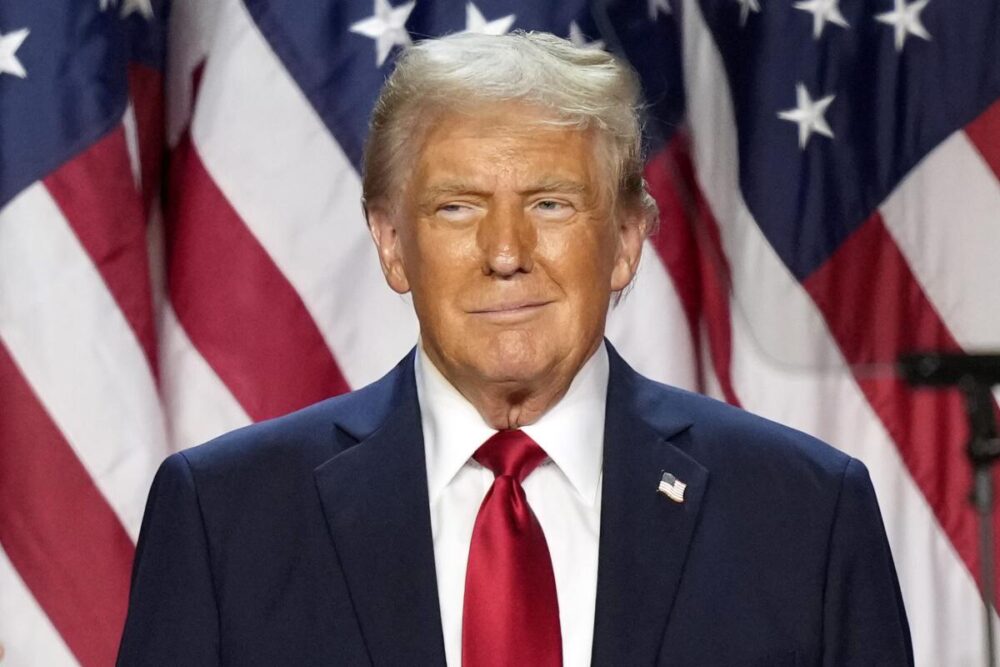Consumers in the United States will be paying a little extra for goods made in Canada next month, courtesy of Donald Trump’s latest spate of tariffs.
President Donald Trump said on Thursday that he would be boosting the existing trade tariffs to 35 per cent on all goods that do not comply with the 2020 USMCA trade deal, although ultimately the deals are up to him.
Canada, one of the largest U.S. trading partners, has received a letter from Trump warning of new tariffs set for August 1. Futures for major stock indexes dropped on the news.
A White House official, speaking on condition of anonymity, said the administration will target goods that do not comply with the 2020 USMCA. However, Trump will ultimately decide the tariff details.
Trump had said in an earlier interview that he was considering 15 or 20 per cent tariffs on all countries lacking trade deals with the U.S. Therefore, countries without agreements may soon face broad economic pressure. Additionally, this move signals a more aggressive phase in Trump’s trade policy.
Trump addressed a letter to Prime Minister Mark Carney and shared it on Truth Social. He criticized Canada for what he called its “failure” to stop drugs from entering the U.S.
He has repeatedly said the tariffs retaliate against Canada’s inaction on fentanyl trafficking. In addition, he blames Canada for not doing more to secure the border.
However, statistics show that relatively little fentanyl enters the U.S. through Canada with most arriving through other routes. Experts also question the effectiveness of targeting Canada with tariffs over this issue.
Read more: Trump boasts that rare earths supply deal with Chinese is ‘DONE’
Read more: How the United States is finding ways around Chinese antimony stranglehold
Stats how little fentanyl travels into US from Canada
Trump addressed a letter to Prime Minister Mark Carney and shared it on Truth Social. He criticized Canada for what he called its “failure” to stop drugs from entering the U.S.
He has repeatedly said the tariffs retaliate against Canada’s inaction on fentanyl trafficking. In addition, he blames Canada for not doing more to secure the border.
“If Canada works with me to stop the flow of fentanyl, we will, perhaps, consider an adjustment to this letter,” Trump wrote.
However, statistics show that relatively little fentanyl enters the U.S. through Canada. Conversely, most of the drug arrives through other routes. Further, experts question the effectiveness of targeting Canada with tariffs over this issue.
Throughout the current trade negotiations with the United States, the Canadian government has steadfastly defended our workers and businesses. We will continue to do so as we work towards the revised deadline of August 1.
Canada has made vital progress to stop the scourge…
— Mark Carney (@MarkJCarney) July 11, 2025
Carney responded late Thursday on X, stating that his government continues to defend Canadian workers and businesses. He also said they remain committed as they work toward the revised August 1 deadline.
He added that Canada has made important progress in fighting the fentanyl crisis in North America.
Canadian Foreign Minister Anita Anand said earlier Thursday, before Trump’s announcement, that she remained hopeful the two countries would reach a new economic and security deal by July 21. Carney had also been pushing for that deadline.
Trade experts called Trump’s tariff threat a sharp departure from USMCA principles. Mary Lovely of the Peterson Institute said the move risks economic retaliation and undermines regional cooperation. Also, former USTR official Wendy Cutler warned it could strain critical supply chains.
Conversely, some analysts argued the pressure tactic might push Canada to act faster on drug enforcement. However, most agree the strategy introduces uncertainty into North American trade. Experts say targeted tariffs could backfire, especially if Canada responds with its own measures.
.
joseph@mugglehead.com













